“He's growing! Look! See how he's growing! I have seen the Lord! The Lord! The Lord!”Die Blechtrommel [The Tin Drum] (Volker Schlöndorff, 1979)
Dec
21
winter solstice
.jpg)
Little Oskar with his tin drum. DP: Igor Luther.
Something short for winter solstice.
– Schugger-Leo
On the eve of World War 2, little Oskar – just three years old – decides he doesn't want to grow anymore.
WestGermany
La polizia ringrazia [Execution Squad / The Law Enforcers] (Steno, 1972)
Nov
23

Sandra (Mariangela Melato) and Francesco Bettarini (Franco Fabrizi). DP: Riccardo Pallottini.
– Why do they call you The Gorilla?
– Because I'm big and strong… and everyone has to have a name.Götter der Pest [Gods of the Plague] (Rainer Werner Fassbinder, 1970)
Nov
12
1943

Pornography peddler Carla Aulaulu's (Carla Egerer) criminal record. She's born on November 12, 1943 in Kronstadt. DP: Dietrich Lohmann.
During one scene a perpetual calendar is visible. It's a 26th.
“Oh keiner macht's wie du,
Wie du so traut sich's keiner,
So wie du”Das Gold der Liebe [The Gold of Love] (Eckhart Schmidt, 1983)
Nov
9
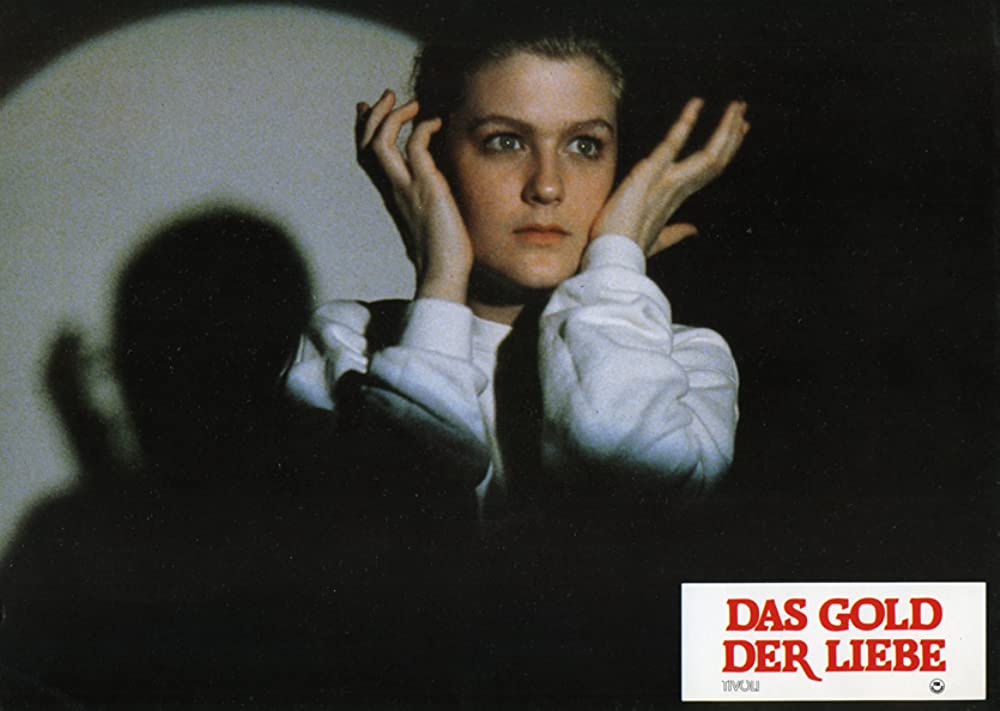
DAF-fan Patricia (Alexandra Curtis). DP: Bernd Heinl.
– DAF – El Que (Gold und Liebe (1981)
“Junge, du bist ja ganz woanders!” Bübchen (Roland Klick, 1968)
Nov
1
autumn
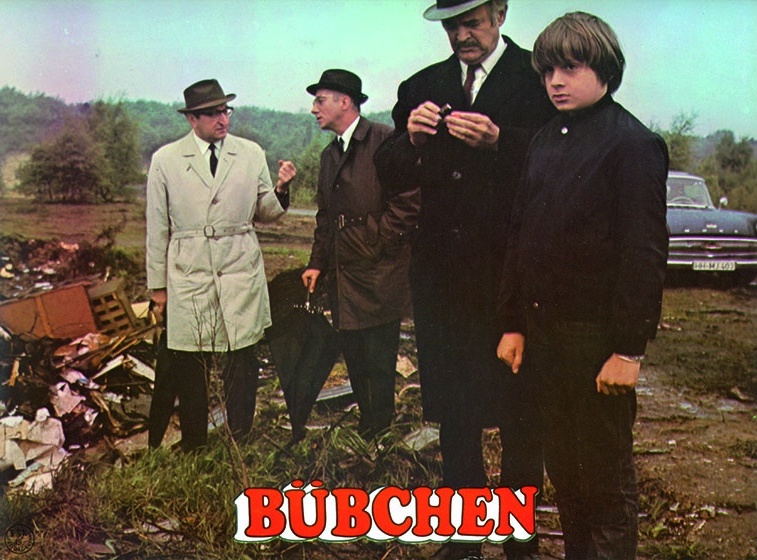
Lobby card. Achim (Alexander Kekulé) at a dreary, autumn-y scrapyard surrounded by several serious looking men in trenchcoats. Bübchen is an endearing term for a little boy (via (spoilers)). DP: Robert van Ackeren.
A movie that feels like autumn*
A family of four share the same house and live their own lives. When the parents attend a company party, the neighbour's teenage daughter reluctantly babysits the children then promptly runs off with her secret boyfriend. Left to his own devices, the bored 10-year old Achim plays a game with his little sister
I Initially nomintad the RAF critique Deutschland im Herbst (1978) for today's challenge, when I realised that Bübchen too is about Germany's youth's antics and the society that planted its seeds. Here again, a repressed community dutifully finds a way to bury the terror into the fabric of mundanity. You'll find it again in Michael Haneke's Das weiße Band (2009), now foretelling the German youth that came to embrace Nazism.
Eternal return, ad nauseam.
* the Bales 2025 Film Challenge for November is, again, not date-based, but follows a sloppy schmaltzy all-American Thanksgiving-y narrative. Trying to make it work my way.
“I never thought I could be friends with a German again. But here I am… Werner is somehow like Murnau brought back to life.” Nosferatu: Phantom der Nacht [Nosferatu the Vampyre] (Werner Herzog, 1979)
Oct
22
eternal returns
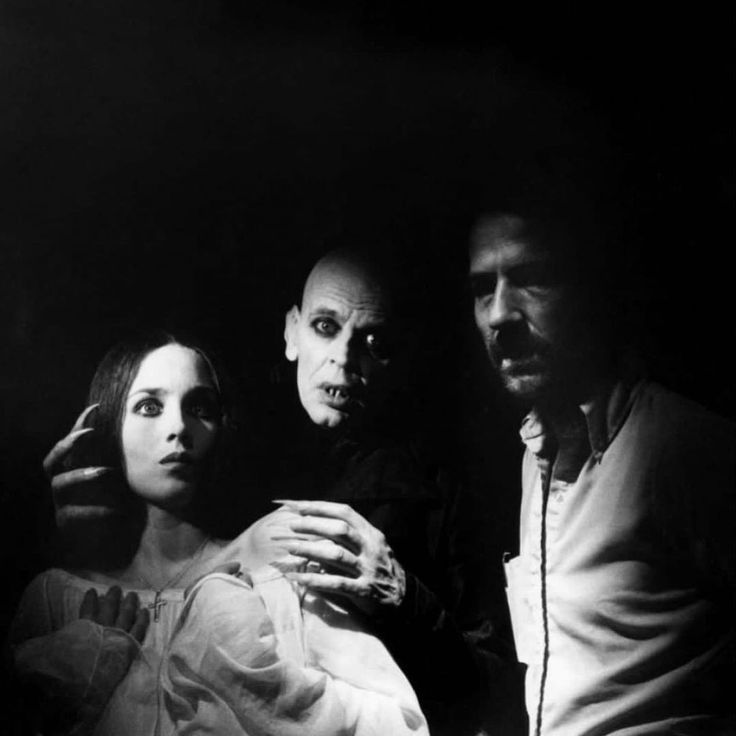
Adjani, Kinski, and Herzog on set. DP: Jörg Schmidt-Reitwein.
[A favourite] horror remake*
– Lotte Eisner visiting the set of Herzog's Nosferatu (via)
Coming back to Murnau's expressionist masterpiece was Herzog's bridge between the films made by the grandfathers of German cinema and his era. Herzog, born in 1942 Munich, noted this void created by that philistine regime and felt that, by picking up the thread cut a quarter of a century earlier, German culture could see a restoration to its (non-nationalistic) greatness. Thus a menagerie of rats and actors was released in a reluctant, bourgeois Dutch town.
But that's a story for another generation to draw upon.
* the Bales 2025 Film Challenge for October is horror-themed as opposed to date-based, and is all about favourites. Expect non-horror and films I believe to be relevant instead.
“You are one of us now. The Queen of the Night will bear you up on her black wings.” Vampyros Lesbos (Jesús Franco, 1971)
Oct
2
Dracula
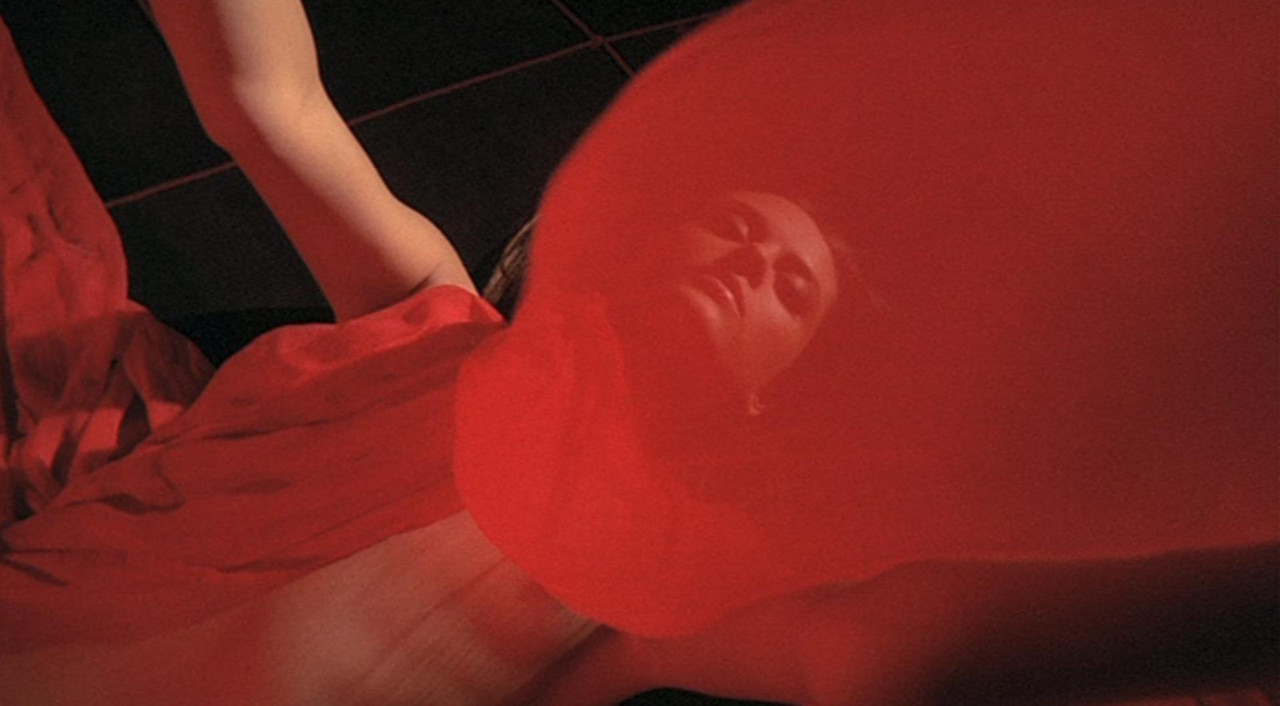
The Countess (Soledad Miranda, sigh…) in a blood curling striptease (via). DP: Manuel Merino.
A favourite Dracula movie. As my very most favourite Dracula movie has been claimed, I go with its nearest competitor that somehow also features my favourite Jesus*
Linda (Ewa Strömberg) has been summoned by Countess Nadine Carody (Soledad Miranda) to handle a real estate inheritance from a certain Count Dracula. Spellbound, she finds herself on a small island, and helpless in the Countess' embrace.
– Countess Nadine Carody
A film that can easily hold up against Jean Rollins' dreamy vampire erotica, this love letter to Soledad Miranda's brooding torment is a delight to watch and a pinnacle in Jess Franco's filmography. Its influence on neo-Giallo Amer and Dario Argento – particularly his Suspiria – is evident, and that in itself should give you enough clues of how much of an essential chapter Vampyros Lesbos is in adult European filmmaking.
* the Bales 2025 Film Challenge for October is horror-themed as opposed to date-based, and is all about favourites. Expect non-horror and films I believe to be relevant instead.
Medium (Jacek Koprowicz, 1985)
Oct
2

A man in an impeccable, light-colored suit. His nose is bleeding. DPs: Jerzy Zieliński & Wit Dąbal.
“There's too much on my mind
There's too much on my mind
And I can't sleep at night thinking about it
I'm thinking all the time
There's too much on my mind
It seems there's more to life than just to live it”Summer in the City (Wim Wenders, 1970)
Sep
26
Paul Newman – 2006
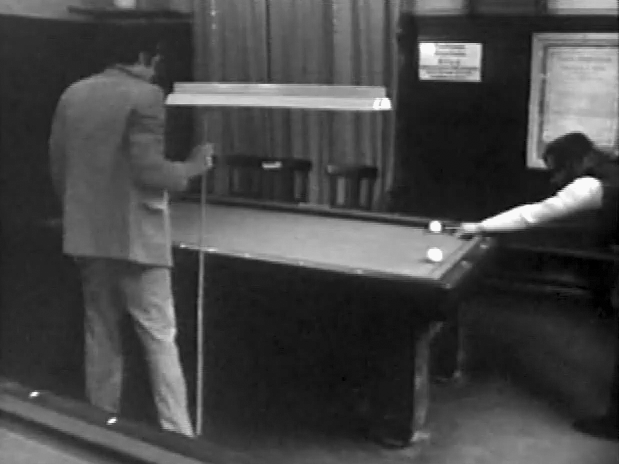
Hanns and Wenders playing billiards. DP: Robby Müller.
Billiards, or Paul Newman (1925 – 2006).
– The Kinks, Too Much On My Mind (from Face To Face, 1966)
Hanns (Hanns Zischler) plays billiards with Wim Wenders.
“In all my years of practice, I've never seen anything so sweet. A rosebud.”Sweet Movie (Dušan Makavejev, 1974)
Sep
13
International Chocolate Day
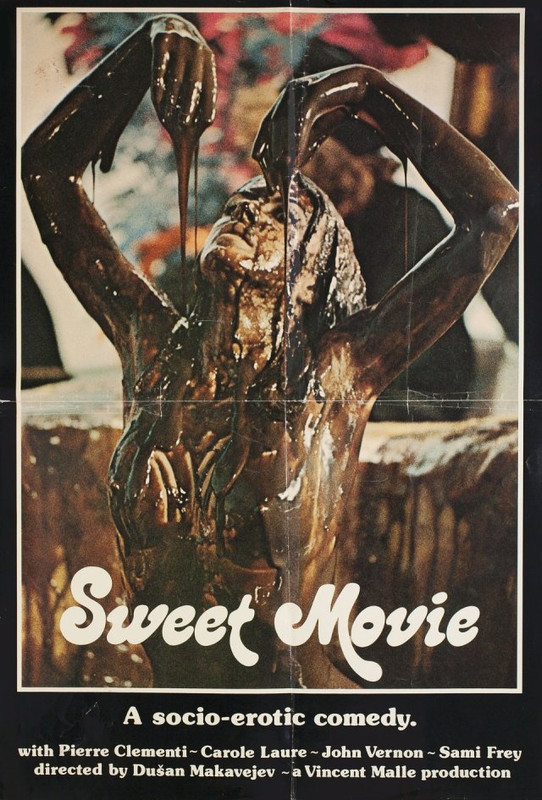
The most virgin, Miss 1984 (Carole Laure), bathing in chocolate. DP: Pierre Lhomme.
Chocolate for International Chocolate Day (Milton S. Hershey's birthday)
– Dr. Mittelfinger
Miss Canada, winner of the “most virgin” contest, escapes her rich, milk tycoon husband into a world of anarchy, lust, and sugar.